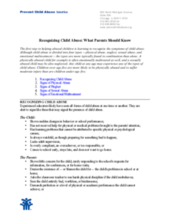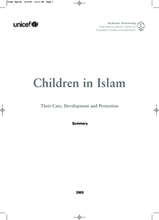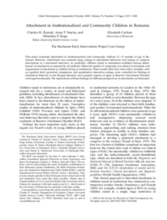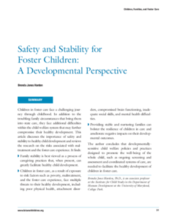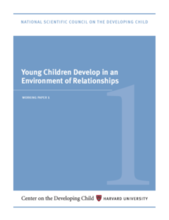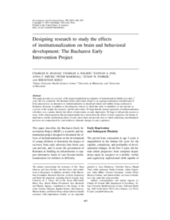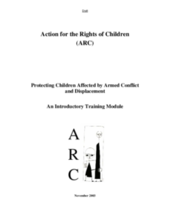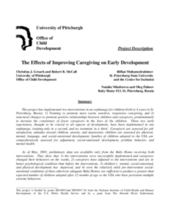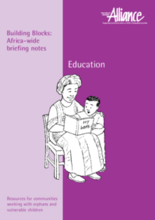Displaying 461 - 470 of 490
This report presents the survey Kevin Browne and colleagues conducted in 33 European countries to identify the number and characteristics of children less than three placed in residential care without their parents for more than three months during the year ending December 31, 2003. The purpose was to assess the rate and cost of residential care as a response to children in adversity.
A three-page document outlining how to recognize signs of abuse, including sexual abuse, physical abuse, or neglect.
An overview of child rights and protection as it relates to the central tenets of Islam. Contains brief information on alternative care, children affected by HIV/AIDS, protection from abuse, and other issues.
This study examined attachment in institutionalized and community children 12 – 31 months of age in Bucharest, Romania.
This article discusses the importance of safety and stability to healthy child development and reviews the research on the risks associated with maltreatment and the foster care experience in the United States.
This working paper from the National Scientific Council on the Developing Child explains how adult-child relationships shape child development, and identifies ways to strengthen policies that affect those relationships in the early childhood years.
An overview of the largest longitudinal investigation of institutionalized children less than 2 years old ever conducted.
Training module outlining key principles concerning the protection of children affected by armed conflict and displacement. Topics include legal frameworks, identifying protection issues, threats to children in emergencies, and promoting healthy child development.
Through a review of orphanages in St. Petersburg, Russia, this study examines the causal roles of consistency in caregivers and appropriate caregiving behaviors in the social, emotional, and development of young children.
Outlines the impact of HIV/AIDS on children’s education and suggests strategies for meeting children’s educational needs. Includes a list of follow-up resources.

